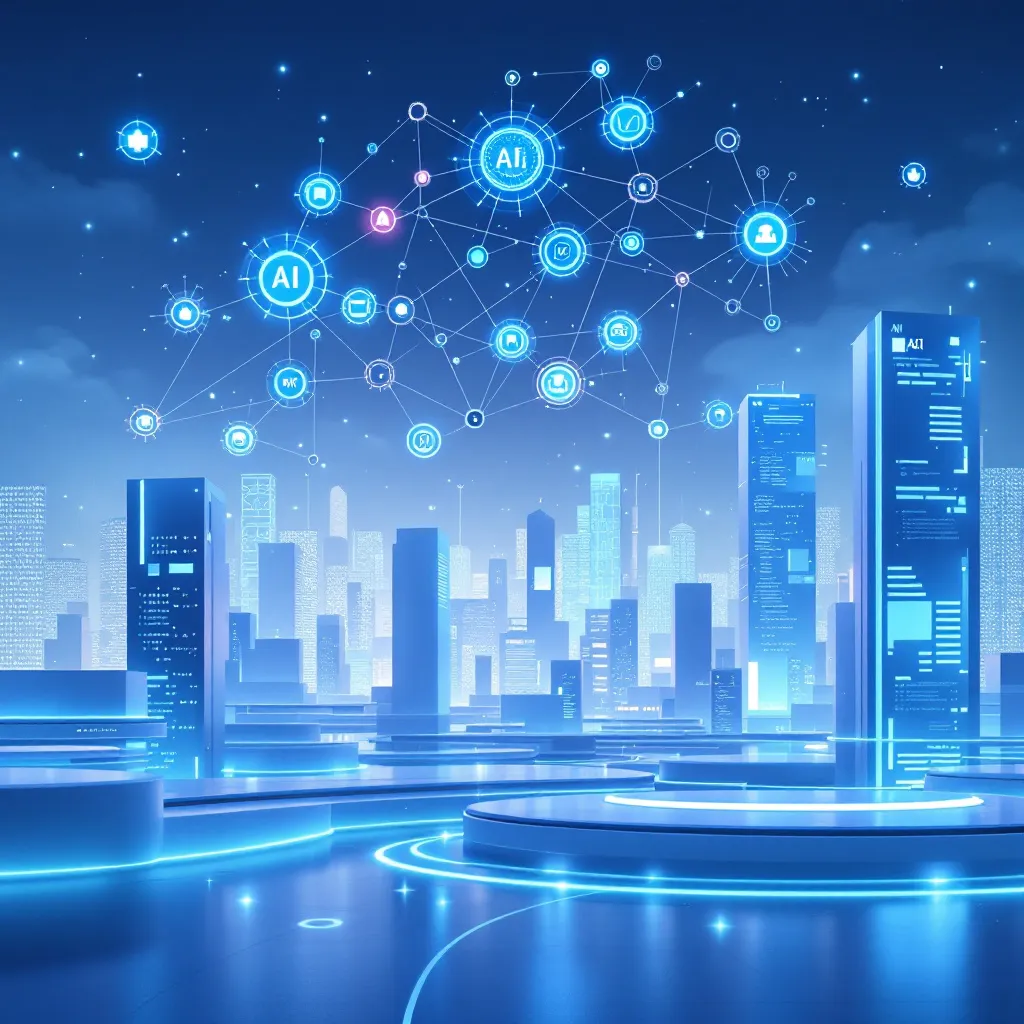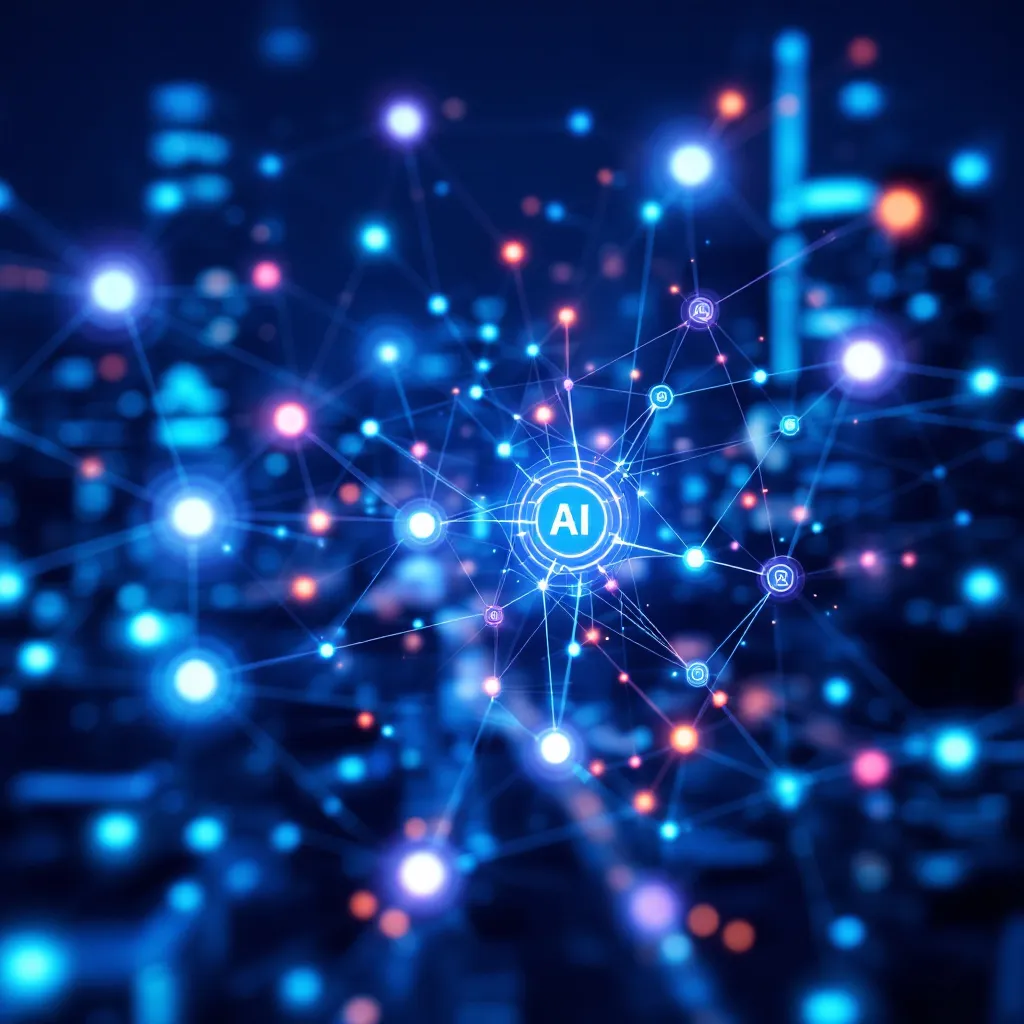AI Agents Replace Software in 2025? Agency Guide

AI agents automating complex tasks will redefine business software by 2025. Learn how this shift boosts efficiency and provides a competitive edge over traditional systems.
The AI Agent Revolution: Why Traditional Software's Days are Numbered in 2025
The software landscape is perpetually evolving, but the next shift promises to be a seismic one. We're not just talking about new features or faster processors; we're on the cusp of a fundamental change in how we interact with technology. By 2025, the rise of AI agents will begin to seriously challenge the dominance of traditional software applications, offering a more intuitive, adaptable, and ultimately more powerful way for businesses and individuals to achieve their goals.
Traditional software, for all its advancements, operates on rigid, pre-programmed instructions. It requires users to understand its interface, follow specific workflows, and often requires specialized training. Need to analyze market trends? You open a specific analytics program, input the data, and navigate menus to generate reports. Need to automate customer service? You invest in a complex CRM system and configure workflows based on anticipated scenarios. This approach, while effective in many cases, is inherently limited by its dependence on human direction and its inability to proactively adapt to changing circumstances.
AI agents, on the other hand, offer a fundamentally different paradigm. These intelligent systems are designed to understand user intent, learn from experience, and autonomously perform tasks. They go beyond simply executing pre-defined instructions; they analyze data, identify patterns, and make decisions on their own. Instead of requiring you to manually initiate every step of a process, an AI agent can proactively identify opportunities, anticipate challenges, and take action to optimize outcomes.
Several key factors are driving this shift. Firstly, advancements in Natural Language Processing (NLP) and Machine Learning (ML) have made it possible for AI agents to understand and respond to human language with increasing accuracy. This allows users to interact with these agents in a natural, conversational way, eliminating the need to learn complex software interfaces. Imagine simply telling your AI agent to "identify potential growth opportunities in the Southeast market" and having it autonomously analyze market data, competitor activities, and customer feedback to present you with actionable insights.
Secondly, the increasing availability of data is fueling the training and development of more sophisticated AI agents. These agents learn from vast datasets, allowing them to identify complex patterns and make more accurate predictions. Businesses are increasingly recognizing the value of their data and are actively seeking ways to leverage it for competitive advantage. AI agents provide a powerful mechanism for unlocking the potential of this data.
Finally, the growing demand for automation and efficiency is driving businesses to adopt AI agents. In today's fast-paced environment, companies need to be able to respond quickly to changing market conditions and customer needs. AI agents can automate routine tasks, freeing up human employees to focus on more strategic initiatives. This not only improves efficiency but also reduces errors and improves overall productivity.
What will this shift look like in 2025? We can expect to see AI agents becoming increasingly integrated into various aspects of business operations. In marketing, AI agents will be used to personalize customer experiences, optimize advertising campaigns, and automate lead generation. In sales, they will assist sales teams by identifying potential customers, providing personalized product recommendations, and automating follow-up tasks. In operations, AI agents will be used to optimize supply chains, manage inventory levels, and predict equipment failures.
However, the transition won't be without its challenges. Businesses will need to invest in the infrastructure and expertise required to develop and deploy AI agents. They will also need to address ethical concerns related to data privacy, bias, and job displacement. Furthermore, ensuring that AI agents are aligned with business objectives and are used responsibly will be crucial.
Despite these challenges, the potential benefits of AI agents are too significant to ignore. By 2025, businesses that embrace this technology will gain a significant competitive advantage. Those who cling to traditional software will likely find themselves struggling to keep pace. The future of software is intelligent, autonomous, and proactive. The age of the AI agent is dawning, and it's time to prepare for a world where software understands you, anticipates your needs, and helps you achieve your goals with unprecedented efficiency. The revolution is coming, and 2025 will be a pivotal year in its unfolding.
The software landscape is perpetually evolving, but the next shift promises to be a seismic one. We're not just talking about new features or faster processors; we're on the cusp of a fundamental change in how we interact with technology. By 2025, the rise of AI agents will begin to seriously challenge the dominance of traditional software applications, offering a more intuitive, adaptable, and ultimately more powerful way for businesses and individuals to achieve their goals.
Traditional software, for all its advancements, operates on rigid, pre-programmed instructions. It requires users to understand its interface, follow specific workflows, and often requires specialized training. Need to analyze market trends? You open a specific analytics program, input the data, and navigate menus to generate reports. Need to automate customer service? You invest in a complex CRM system and configure workflows based on anticipated scenarios. This approach, while effective in many cases, is inherently limited by its dependence on human direction and its inability to proactively adapt to changing circumstances.
AI agents, on the other hand, offer a fundamentally different paradigm. These intelligent systems are designed to understand user intent, learn from experience, and autonomously perform tasks. They go beyond simply executing pre-defined instructions; they analyze data, identify patterns, and make decisions on their own. Instead of requiring you to manually initiate every step of a process, an AI agent can proactively identify opportunities, anticipate challenges, and take action to optimize outcomes.
Several key factors are driving this shift. Firstly, advancements in Natural Language Processing (NLP) and Machine Learning (ML) have made it possible for AI agents to understand and respond to human language with increasing accuracy. This allows users to interact with these agents in a natural, conversational way, eliminating the need to learn complex software interfaces. Imagine simply telling your AI agent to "identify potential growth opportunities in the Southeast market" and having it autonomously analyze market data, competitor activities, and customer feedback to present you with actionable insights.
Secondly, the increasing availability of data is fueling the training and development of more sophisticated AI agents. These agents learn from vast datasets, allowing them to identify complex patterns and make more accurate predictions. Businesses are increasingly recognizing the value of their data and are actively seeking ways to leverage it for competitive advantage. AI agents provide a powerful mechanism for unlocking the potential of this data.
Finally, the growing demand for automation and efficiency is driving businesses to adopt AI agents. In today's fast-paced environment, companies need to be able to respond quickly to changing market conditions and customer needs. AI agents can automate routine tasks, freeing up human employees to focus on more strategic initiatives. This not only improves efficiency but also reduces errors and improves overall productivity.
What will this shift look like in 2025? We can expect to see AI agents becoming increasingly integrated into various aspects of business operations. In marketing, AI agents will be used to personalize customer experiences, optimize advertising campaigns, and automate lead generation. In sales, they will assist sales teams by identifying potential customers, providing personalized product recommendations, and automating follow-up tasks. In operations, AI agents will be used to optimize supply chains, manage inventory levels, and predict equipment failures.
However, the transition won't be without its challenges. Businesses will need to invest in the infrastructure and expertise required to develop and deploy AI agents. They will also need to address ethical concerns related to data privacy, bias, and job displacement. Furthermore, ensuring that AI agents are aligned with business objectives and are used responsibly will be crucial.
Despite these challenges, the potential benefits of AI agents are too significant to ignore. By 2025, businesses that embrace this technology will gain a significant competitive advantage. Those who cling to traditional software will likely find themselves struggling to keep pace. The future of software is intelligent, autonomous, and proactive. The age of the AI agent is dawning, and it's time to prepare for a world where software understands you, anticipates your needs, and helps you achieve your goals with unprecedented efficiency. The revolution is coming, and 2025 will be a pivotal year in its unfolding.

Comments (0)
Leave a Comment